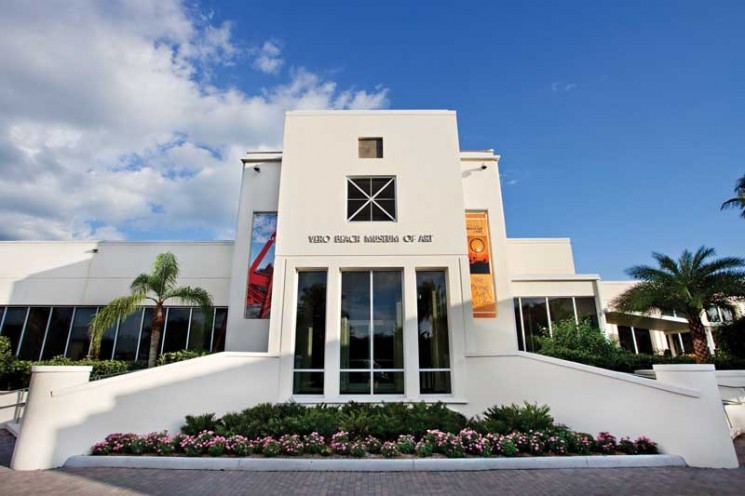
VERO BEACH — Trouble between the Vero Beach Art Club and the Museum of Art appears to be brewing again. After blistering off-season disputes in 2011 and 2013, the club and the museum have lawyered up again, this time over work space for the club’s manager.
Office mates for 30 years, the museum directors have given the club a July 15 deadline to move its lone employee out of the museum’s central administration complex and into the education wing.
Not such a big deal, one might presume; the education wing is where many of the club members come anyway to teach or take classes. And the move was spelled out in a 2011 letter from the museum’s executive director, Lucinda Gedeon, to the club’s 400-plus members.
Turns out, Gedeon’s suggestion wasn’t well-received then, in the midst of a heated dispute over space use fees that had never been charged before.
Further, it appeared to have been rendered moot by a joint statement Gedeon issued in August 2013 with the art club’s then president, Mary Ellen Koser.
That statement followed months of back-and-forth over the club wanting to build its own home next to the museum.
The brief joint statement declared that the two sides had agreed to operate under their original 1985 agreement and “maintain the status quo.”
That 1985 agreement spelled out that the club would have office space within the administration area, and that the club would pay a proportionate share of utilities and other expenses.
The agreement came about after the art club allowed the proposed museum to join the club on its $1-a-year land lease from the city. The club also turned over its own building fund to help the museum get off the ground.
Despite the club’s substantial presence in the community – a committee of volunteers single-handedly stages the three-day Under the Oaks art fair attracting some 80,000 visitors; 3,000 more visit the museum to see its Art-by-the-Sea juried exhibition – the art club has existed in the shadow of the elegant, well-endowed museum ever since.
“When you realize what our official capacity is reduced to, there isn’t much left,” current Art Club President Sue Dinenno says.
Along with the physical move, Dinenno says the museum is asking the club to stop using the museum’s internet server, phone system, copier and coffee maker.
If it ends up that the club does move its office, the club wants compensation for those lost services and other expenses incurred as the result of the changeover. It also wants signage in the museum lobby and in the education wing, plus a new door installed on what was the head of security’s office.
Dinenno wants a door with glass inserts “so it doesn’t look like a closet.”
Unlike the prior disputes, when a pro bono attorney “friend” represented the club, Dinenno has hired “a litigator,” as she puts it: Paul Berg of Berg and Vocelle.
When Berg went to tour the subject offices, the museum had its long-time attorney, Ralph Evans, there to show him around. Last week, Berg spelled out the club’s position to Evans in two emails; he has not heard back.
“That doesn’t surprise me, with the holidays,” says Berg. “Ralph has to reach Cindy. They have a board. Cindy has to go through people and channels. I don’t think there’s been any delay here.”
The latest issue arose last month at what Dinenno now refers to as “the chicken salad lunch,” when Gedeon invited Dinenno and two others from the Art Club to share a table with Gedeon, hairman of the Museum board Scott Alexander, board member Sandy Rolf and director of marketing Sophie Wood.
At the luncheon, Gedeon announced the decision to move the club’s office.
“It caught us flat-footed,” says Dinenno.
“We’re at a place now where we are one giant step from the back door,” says Dinenno. “We just can’t do it anymore.”
With the July 15 deadline looming, Dinenno says the Art Club has a “laundry list” of demands, including funds for buying its own copier and reprinting flyers, applications and business cards with a new email address.
That new email address was circulated in an Art Club press release issued Monday by office manager Christina Tascon, with a note to use “after July 15.”
“None of the conditions are too out of reach,” Dinenno says. “But for us, this is a pretty good-size hit. We’re not budgeted for anything that’s been foisted on us. And we only cleared $17,000 last year. So here we are paying a whole bunch of money that wouldn’t otherwise have to be spent.”
Dinenno admits the club’s office location has been “extremely uncomfortable” tucked within the complex of museum offices.
“Would it kill us to be down in the education wing? No, it wouldn’t. But we have some conditions.”
When the crisis is resolved, she wants to add one more thing: a moratorium on disputes.
“I want something like, OK, we’ll do this, but then can we stop? I mean, every two years, we’re doing this. This is not how I wanted to spend my summer.”
She has a letter drawn up to send to club members in the event that “the museum tells us to drop dead.”
Attorney Berg, however, is optimistic.
“From my personal discussions with Cindy and Ralph, I think that this is something that is relatively minor.”
Gedeon did not respond to messages asking for comment.



